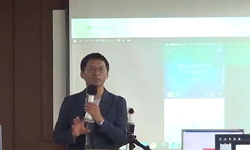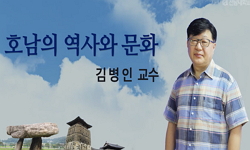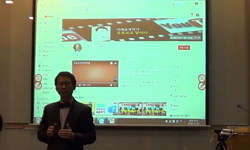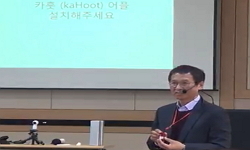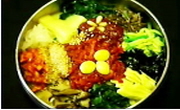At the time period of king Suk-Jong in Joseon dynasty, Hong Woo-Jeon performed an active role as the representative journalist. His son Hong Gae-Hee was also famous as the representative politician in the time of king Yeong-jo. Especially, Hong Woo-Je...
http://chineseinput.net/에서 pinyin(병음)방식으로 중국어를 변환할 수 있습니다.
변환된 중국어를 복사하여 사용하시면 됩니다.
- 中文 을 입력하시려면 zhongwen을 입력하시고 space를누르시면됩니다.
- 北京 을 입력하시려면 beijing을 입력하시고 space를 누르시면 됩니다.
부가정보
다국어 초록 (Multilingual Abstract)
Research was concerned with the original character of his family which was handed down from his ancestors lived in Jeon-Ju and at last it was confirmed. The ruin of his family was started and was ascertained from the place known as Gumiri village.
Currently reserch is forcursed on Bongdong Eup, Wanju Gun country, JoellaBug-do province. Hong Woo-Jeon built his house in this region. His son Hong Gae-Hee passed in the national qualified examination in Jeonju and began to manage a lot of farmland in this area, in the time of king Yeong-Jo. Hong Woo-Jeon passed in the examination of “Jinsa(進士)” which was lower grade than national qualified examination started his official carrier Jinan town official, Hamyang Gun country governor, Geongsang-do provincial governor. In 1719, at the age of 57, he passed
national qualified examination and promoted to the rank of "Daesahoen (大司憲)“ eqivalent to the Board of Audit and Inspection nowadays and he had a great role as sect of No-ron(老論).
He had a deep knowledge on the land reform and economical policy, and exerted a great influence on his son Hong Gae-Hee. After the great oppression and massacre on politician known as “Sin-Yim Sa-Hwa(辛壬士禍)", he retird from officialdom and return to his native town in Go-san and finally remved and settled in Gwichon, Jeonju. He dreamt of coming back political life and opposed to king Jeong-Jo policy of “policy of equality(蕩平策)" and died in 1728.
Hong Woo-Jeon was influenced deeply by "Lee-Sang", leader of No-ron(老論) known as sect of Elderly politician, and at the same time, "Lee-Jae, Lee-Sang's grandson a great deal of ideological influence on Hong Gae-Hee.
Accordingly, in Honam area, historic remaims connected with Hong Gae-Hee was witnessed here and there, especially, Hong Su-Jae's old house where he lived in Kimje, Mangyeong and Mongsan, simultaneous the writer has succeeded to ascertain in monument linked with Hong
Woo-Jeon at Gosan, Wanju Gun in JeolaBuk-do province and his old house known as "Hong Sul-Hae house" at Bong-Dong, In afire-mentioed country and province.
At the time period of king Suk-Jong in Joseon dynasty, Hong Woo-Jeon performed an active role as the representative journalist. His son Hong Gae-Hee was also famous as the representative politician in the time of king Yeong-jo. Especially, Hong Woo-Jeon exerted a great influence on his son Hong Gae-Hee about the policy of Gyunyeok-bob(均役法) known as the land reform. In the period of king Jeong-Jo, his family was perished because of rebellion suspicion to their family. The writer is deeply interested in the legend of their family and Hong Woo-Jeon's gravestone in Jeonju in Honam region.
Research was concerned with the original character of his family which was handed down from his ancestors lived in Jeon-Ju and at last it was confirmed. The ruin of his family was started and was ascertained from the place known as Gumiri village.
Currently reserch is forcursed on Bongdong Eup, Wanju Gun country, JoellaBug-do province. Hong Woo-Jeon built his house in this region. His son Hong Gae-Hee passed in the national qualified examination in Jeonju and began to manage a lot of farmland in this area, in the time of king Yeong-Jo. Hong Woo-Jeon passed in the examination of “Jinsa(進士)” which was lower grade than national qualified examination started his official carrier Jinan town official, Hamyang Gun country governor, Geongsang-do provincial governor. In 1719, at the age of 57, he passed
national qualified examination and promoted to the rank of "Daesahoen (大司憲)“ eqivalent to the Board of Audit and Inspection nowadays and he had a great role as sect of No-ron(老論).
He had a deep knowledge on the land reform and economical policy, and exerted a great influence on his son Hong Gae-Hee. After the great oppression and massacre on politician known as “Sin-Yim Sa-Hwa(辛壬士禍)", he retird from officialdom and return to his native town in Go-san and finally remved and settled in Gwichon, Jeonju. He dreamt of coming back political life and opposed to king Jeong-Jo policy of “policy of equality(蕩平策)" and died in 1728.
Hong Woo-Jeon was influenced deeply by "Lee-Sang", leader of No-ron(老論) known as sect of Elderly politician, and at the same time, "Lee-Jae, Lee-Sang's grandson a great deal of ideological influence on Hong Gae-Hee.
Accordingly, in Honam area, historic remaims connected with Hong Gae-Hee was witnessed here and there, especially, Hong Su-Jae's old house where he lived in Kimje, Mangyeong and Mongsan, simultaneous the writer has succeeded to ascertain in monument linked with Hong
Woo-Jeon at Gosan, Wanju Gun in JeolaBuk-do province and his old house known as "Hong Sul-Hae house" at Bong-Dong, In afire-mentioed country and province.
목차 (Table of Contents)
- Ⅰ. 서 론
- Ⅱ. 홍우전의 가계와 고산 입향
- Ⅲ. 홍우전의 정치적 생애
- 1. 제1기(1702∼1718)
- 2. 제2기(1719∼1728)
- Ⅰ. 서 론
- Ⅱ. 홍우전의 가계와 고산 입향
- Ⅲ. 홍우전의 정치적 생애
- 1. 제1기(1702∼1718)
- 2. 제2기(1719∼1728)
- Ⅳ. 홍우전의 전주 지역 정착
- Ⅴ. 결 론
- [Abstract]
동일학술지(권/호) 다른 논문
-
- 대동사학회
- 최범호
- 2005
-
- 대동사학회
- 李熙煥
- 2005
-
- 대동사학회
- 장순순
- 2005
-
- 대동사학회
- 송만오
- 2005




 eArticle
eArticle